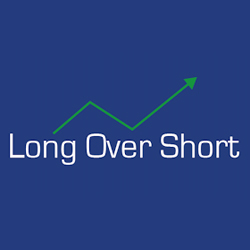If you’re looking to switch careers, becoming an investment banker is likely the last one on your list. Not many people know what the profession entails, and the stereotype of the suit-and-tie commuter with a Bluetooth earpiece, spewing financial mumbo-jumbo, isn’t very attractive to the average person.

But there’s far more to what an investment banker does. When business owners need to raise financing, they turn to investment bankers who specialize in selling equity and facilitating mergers and acquisitions.
In short, an investment banker is a partner for progress in an economy that’s always struggling with uncertainty. And because of the responsibilities involved, people who take up this career path earn a base salary of up to $100,000, not counting bonuses and other incentives.
Convinced of making the switch to the investment banking world? Here’s a quick guide to help you make the most out of this transition:
Do your homework
Just like any other career decision, switching to a career in investment banking might have pitfalls you need to be aware of. It’s not always that people make the right decisions when they make such a choice. For sure, it’s not the same as becoming a fund manager. In fact, becoming an investment banker involves a number of risks. You can get around these risks by doing a bit of research and setting your expectations for the new world you are about to enter.
Most often, you will need to start as a financial analyst to really get the ball rolling. But given the highly competitive nature of the field, you might want to consider taking an internship at a reputable firm. This is crucial if you need to build contacts and know how financial markets work. You might even be lucky enough to get great insights about the field through first-hand experience or mentorship.
Be hungry for information
Once you find yourself hooked by the financial sector, your only choice for getting ahead is to grab every opportunity to learn strategies, trends, and insights that are making a big impact in the financial markets.
For this, you may need to check out online publications such as Forbes which publishes great analytical content about the latest financial news and strategies in stock trading. Podcasts and video series are also great sources for relevant information. Following influencers is also a good way to access a vast amount of knowledge for shaping your strategy. But the best strategy of all is to seek out online or classroom lectures where you can learn everything there is to know about the field.
Share knowledge
People are constantly looking for information that can help them start a career in the financial sector. Large companies, on the other hand, are eager to structure their financing. In both ways, writing blogs about current economic trends can help you gain exposure.
There are a plethora of platforms you can use to publish compelling thought-pieces about the sector. Forbes and The Huffington Post are always on top of the list, but you can also consider posting blogs on LinkedIn or manage your own professional website that you can use to find opportunities to connect. All you need is to give your audience valuable investing advice.
It’s true that investment banking isn’t for everyone, but there’s no shame in giving it a try if it’s a career path you’re interested in. So long as you have a passion for helping companies grow, you are definitely on the right track.


 Hot Features
Hot Features













